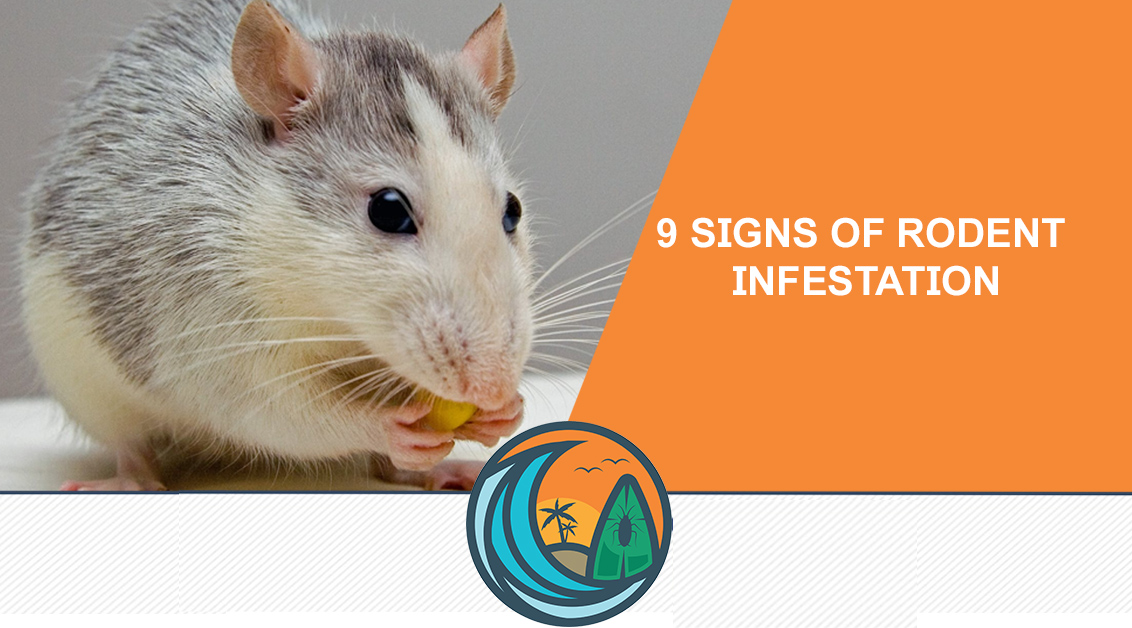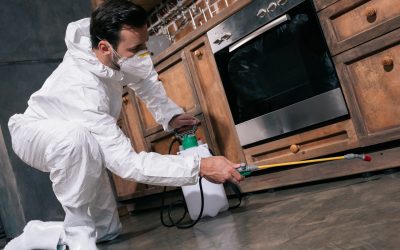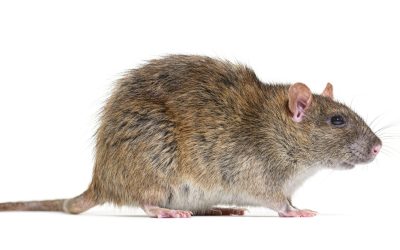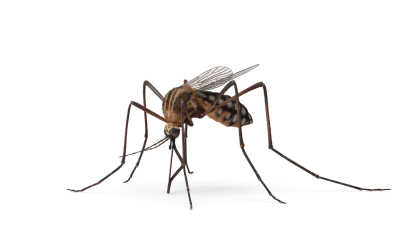Did you know that rodents have open-root dentition or their teeth continue to grow throughout their lives? Rodents continuously gnaw on wood and other materials to prevent their teeth from becoming too long. Rodents fall under the order “Rodentia,” which defines many species, including:
- Mice
- Rats
- Squirrels
- Voles
- Hamsters
- Chipmunks
- Prairie Dogs
Rodent infestation is a major headache for both residential and business properties. Rodents vary in size and are usually small, with exceptions like capybara, a species with South American origin and a recent major nuisance in Florida. It’s not just the property damage; rodents are also disease carriers. Neither humans nor pets are safe living in a rodent-infested property, be it commercial or residential. Look for the following signs to identify whether rodents have invaded your property.
Odor
If you sense a musky and pungent smell around your household or office space, it could imply rodent infestation. The smell could be from rodent droppings and activities. The larger the rodent colony becomes, the stronger the odor gets. Additionally, properties with rodent infestation can also be marked by a rotting smell, especially when the rodents die in crawl spaces. We recommend calling a professional pest control service to handle such scenarios and to disinfect the affected area. If you wish to handle the situation by yourself, make it mandatory to wear gloves.
Chew marks
As touched on above, rodents gnaw continuously, leaving visible chew marks all around your property. However, if the infestation is at its nascent stage, chew marks will be in dwelling areas that are hard to spot, for example, deep inside the kitchen cupboards, wires, and plumbing fittings in crawl areas. Keep an eye out for these signs and make it a point to inspect hardly visited places such as attic or storerooms where you store books, papers, and clothes at least once a month.
Droppings
Did you know that mice can leave up to 80 droppings per night? Rodent droppings are usually in the shape of grain and appear dark brown. Keep an eye out for droppings around your property, especially ceilings, cupboards, and crawl spaces.
Pet behavior
Notice your cat scratching at walls or the cupboard doors? Your cat or dog could also act restless around locations that house rodents. Keep an eye out for such odd behavior from your pets and note the areas down so that you can help the pest control service during their inspection.
Allergies
Are you sneezing nonstop? Or do you have breathing difficulties? This could be due to the long-term exposure to allergens from rodents. Rodents, especially mice, produce highly allergenic protein, which is expelled from their body via urine. As the urine dries out, these protein particles turn to deposit and eventually get airborne. As the colony grows, the concentration of these airborne allergenic protein increase and prolonged exposure can trigger asthma, breathing difficulties and headaches.
Noise and marks
Noise from gnawing, grinding, and scampering are common with rodent infestations. The source of these noises is usually attics, crawl spaces, and ceilings.
Rodent fur usually contains dirt and oil, and these brushing against walls and floors can leave grease marks.
Live or dead rodents
Finding live or dead rodents around your property consistently confirms rodent infestation and the possibility of a nest.
Rodent nest
Rodents can nest in cardboard boxes, paper piles, and fabrics. Keep an eye out for rodent nests in cavity walls, attics, storerooms, and ceilings.
Property damage
Notice unexplainable holes, burrows, or small dunes around your property? This could indicate rodent infestation. Rodents tend to gnaw small holes to make new entry and exit paths to quickly get around.
If not identified and taken care of on time, a rodent infestation can cost you big. Consistent property inspection could be a lifesaver. We advise getting your property inspected by a certified rodent removal specialist to ensure that you take care of the root problem and reduce the possibility of re-infestation.





0 Comments